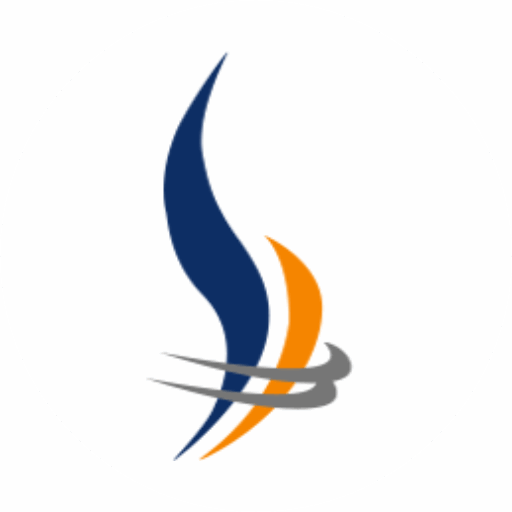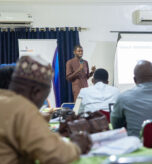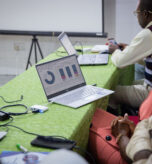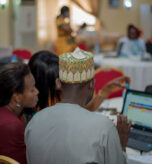The Struggle for Safe Childbirth in Rural Nigeria
Imagine a small rural village in Nigeria, where the nearest hospital is miles away, and the only healthcare available is through a small, under-resourced clinic. Women in this village often give birth at home, attended by untrained family members or traditional birth attendants. The risks are high, and the outcomes are often tragic, with many mothers and infants not surviving the childbirth process. This village is a small-scale version of the larger issues plaguing Nigeria’s healthcare system vulnerable populations.

The Urgent Crisis of Maternal and Infant Mortality in Nigeria
Nigeria’s healthcare landscape is characterized by profound challenges that directly affect the nation’s maternal and child health outcomes. Among these challenges is the severe shortage of skilled birth attendants (SBA) at the PHC facility level. According to the WHO[1], SBA includes accredited healthcare personnel such as medical doctors and nurses/midwives who are trained on the management of normal pregnancies, child deliveries, and post-natal care. Nevertheless, in Nigeria, SBAs are composed of medical doctors, nurses/midwives, and CHEWs[2]. Due to the shortage of SBAs at the various healthcare at the PHC level, Nigeria has the third-highest maternal and infant mortality globally. Statistically, there are 1047 recorded maternal deaths for every 100,000 live births, alongside 63 infant mortality per 1000 live births according to the 2021 MICS. The staggering rate of maternal and infant mortality raises a severe public health concern in Nigeria.
To support the ongoing efforts to improve maternal and child health outcomes in Nigeria from the HRH standpoint, Sydani Group, supported by the Bill & Melinda Gates Foundation (BMGF), implemented the Learning Agenda towards HRH/Midwifery/SBA Solutioning project, to explore the SBA landscape at the PHC level and to proffer sustainable and evidenced-based solutions to improve the availability, quality, and accessibility of SBAs at the PHC level in Nigeria.

Uncovering Critical Insights and Opportunities
In executing this project, the team engaged in insight-gathering activities including an extensive scoping review of existing HRH policies, models, and interventions, nationwide polling surveys, and key informant interviews in selected states. The study investigated deeply the root causes of the lingering SBA crisis across the country, and findings were synthesized to develop an HRH solutions model named the EMBRACE model with recommendations across the elements of the model.
The insight-gathering activities uncovered several challenges across the various components of HRH, at the leadership and governance level, there are no updated HRH policies and strategic plans in some states such as Enugu, Ekiti, etc. In states (such as Bauchi, Lagos, Kano, etc.,) with the existence of these policies, an established monitoring and accountability mechanism is absent. This makes these policies redundant, as they are reduced to a set of documents used just to fill in the bookshelves. This lack of intentionality and capacity of the relevant stakeholders to execute the specified policy activities contributes to the poor implementation of existing HRH policies at the national and subnational levels.
In Kano State, the situation is dire. With only 213 midwives available across 44 Local Government Areas (LGAs), the state faces a staggering 93.8% gap, needing 2,438 midwives to meet the population’s needs. In 37 of these LGAs, the shortage is critical, with over 75% of required positions unfilled.
The Findings from our Perception Poll of SBAs further reveal that 74% of respondents are struggling with overwhelming workloads due to a severe shortage of healthcare workers and mismanagement in Primary Healthcare. Safety and security concerns are top of mind for those working in urban centers when considering rural assignments.
The frustration among SBAs is palpable, with many expressing that the lack of essential drugs and equipment severely hampers the quality of care they can provide. A striking 74% of SBAs would jump at the chance to emigrate for better job prospects, though a strong sense of family and patriotism holds back the remaining 26%. Interestingly, despite the high interest in relocation, only 34% are actively making plans to leave the country due to financial constraints, while the other 66% remain in their current roles, financially unable to make the move.
Meanwhile, in Kaduna State, the rural allowance for midwives is woefully inadequate, failing to provide the motivation needed to retain them in these challenging environments. The current remuneration structure is simply not enough to cover living expenses, making it clear that significant improvements are needed to keep these essential healthcare workers in rural areas.

The EMBRACE Model
Our understanding of the strengths and weakness of the past SBA-targeted interventions and underlying causes of the insistent SBA crisis at the PHC level in Nigeria helped in the development of the (Ensuring Motivated Balanced Resourceful Access to Skilled Birth Attendants) EMBRACE model. This model asserts that to improve the SBA landscape by ensuring we have adequate, quality, motivated, and accessible SBAs at the PHC facilities in Nigeria, government/development partner-driven initiatives must cut across all the elements of the model. This includes addressing the challenges within the management and administration, financing, HRH information system, size and distribution, production and in-service training, and performance, retention, and exit management.
Specifically based on the underpinning challenges in the SBA landscape at the PHC facility the EMBRACE model emphasizes equitable distribution of skilled birth attendants, particularly addressing rural-urban disparities. It leverages data from the 2022 HRH profiling exercise to align SBA deployment with areas of greatest need, ensuring that every community has access to quality maternal care. Additionally, the model incorporates innovative retention strategies such as competitive salary reviews, rural bonuses, and career development pathways to maintain a motivated and stable workforce.

A central component of the EMBRACE model is the development of a comprehensive HRH information system that tracks workforce metrics across production, distribution, and retention. This system aids in real-time decision-making and long-term strategic planning, ensuring continuous improvement in healthcare delivery. The model also includes mechanisms for regular performance evaluation of health workers, enhancing accountability and ongoing professional development.
Community engagement is vital for the model’s success, ensuring that the solutions are culturally sensitive and supported by those they aim to serve. By collaborating with health training institutes, the model ensures a steady pipeline of well-trained SBAs through enhanced curricula and training opportunities. The EMBRACE model is designed to be adaptive, with iterative feedback loops incorporated to refine the approach based on ongoing evaluation and stakeholder feedback.
Join the Movement for Better Health Outcomes
The findings and innovations from this project underscore the urgent need for a systemic approach to HRH challenges in Nigeria. It is imperative for both governmental and non-governmental stakeholders to champion these insights and transform them into actionable policies that will significantly enhance the lives of mothers and children across Nigeria. By embracing the EMBRACE model, we can make substantial strides in improving maternal and child health outcomes, creating a healthier future for Nigeria.
The journey ahead is complex, but with a concerted effort, it is possible to transform Nigeria’s healthcare landscape. Every mother and child deserve access to quality care, and by working together, we can bridge the gap and build a stronger, more resilient healthcare system. Join us in this critical mission and help ensure a brighter, healthier future for all.





